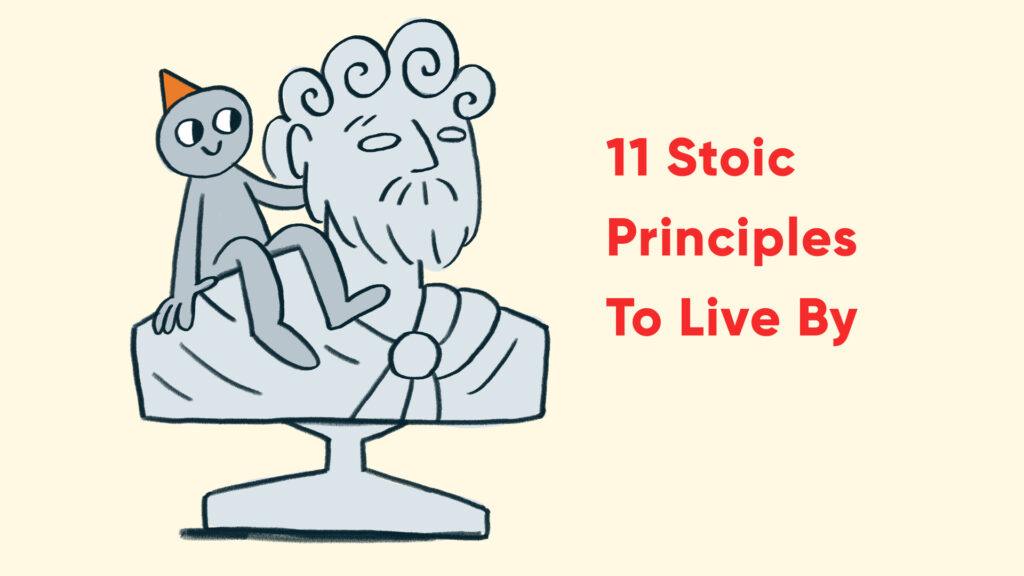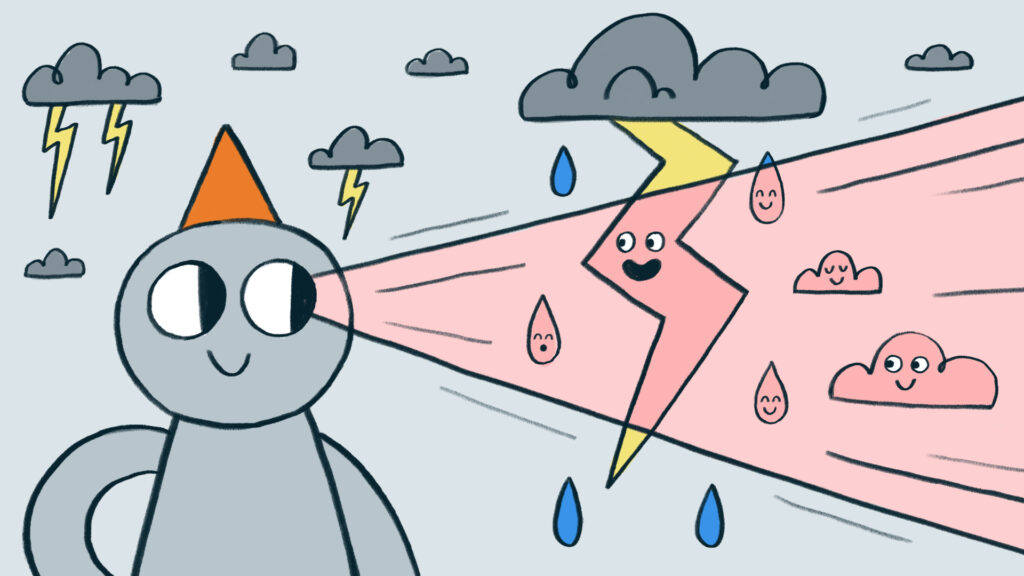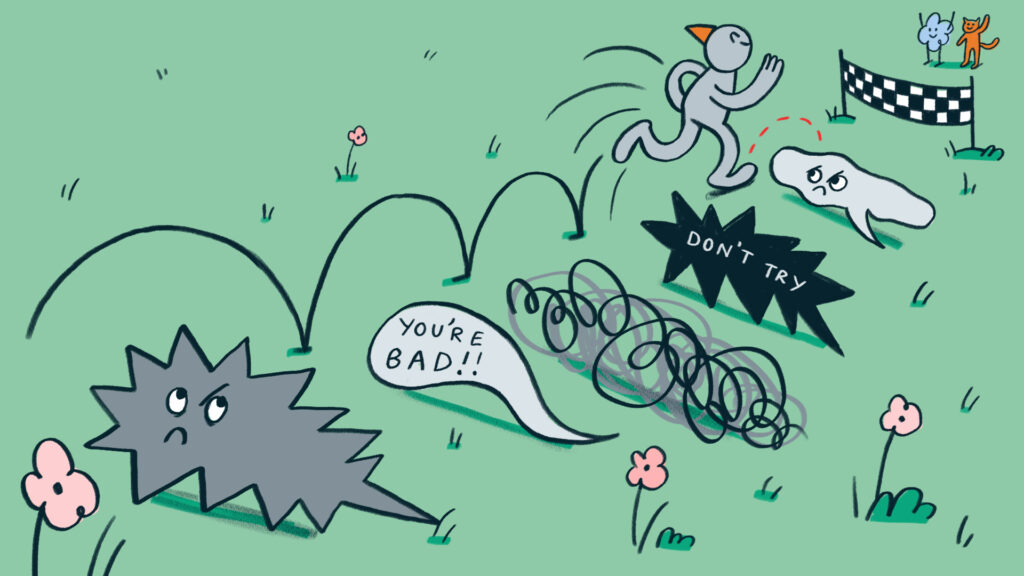11 Stoic Principles to Live By16 min read

For thousands of years, many of the greatest rulers of all time have abided by the cardinal virtues of a single philosophy. This philosophy emphasized temperance, courage, justice, and practical wisdom.
The great roman emperor Marcus Aurelius, who ruled for 20 years, with arguably the most power in the entire world at that time, practiced this philosophy.
Arnold Schwarzenegger, Nassim Taleb, and Tim Ferriss all have studied and put into practice this same philosophy.
This philosophy is Stoicism.
Stoicism was born around 300 BC from the greek philosopher Zeno and then furthered by the likes of Seneca, Marcus Aurelius, and Epictetus. Since 300 BC, Stoicism has occasionally popped up. For example, in the 1600s where Michel de Montaigne defended Seneca in one of his Essays or, more recently, in Victor Frankl’s Logotherapy.
Stoicism is a philosophy about living the best possible life. That sounds pretty good to me.
I collated, correlated, and corroborated from historical texts, modern-day translations, and popular sources to develop 11 fundamental principles. 11 central Stoic ideas that have been around for centuries can help us live better lives. Here are 11 stoic tenets to live by.
1. Self-Control
You only have to doze a moment, and all is lost. For ruin and salvation both have their source inside of you.
Epictetus
Discipline, or self-control, bleeds into everything you do. Exercise, diet, studying, reading, and working depend on discipline. The better our discipline, the more we can accomplish. Importantly, we must be aware of our unique flaws and what distracts us and focuses us. Because that way, we can understand the way we uniquely work
Distractions are noted and ignored. Goals are noted and pursued.

Beyond the discipline of our actions toward doing what we think is beneficial, we can also have self-control towards what we perceive as negative.
For me, anger, boredom, fear, anxiety, jealousy, and excitement can sometimes take over my thinking brain. But I don’t want my thinking brain to be overruled because my thinking brain, usually, is the one that makes rational decisions.
He who cannot obey himself will be commanded. That is the nature of living creatures.
Friedrich Nietzsche
This sounds very good, but how do we take action? Here are some things we can do (that are much easier said than done):
- Eliminate distractors as much as possible: social media, TV, video games
- Add the “hard” things that are “good”: exercise, reading, nature
- Treat every day like a new day. What’s in front of you? How can you improve today?
- Take control of your anger and your excitement; whenever strong emotions come up, notice them, and don’t let them control you. At a minimum, when a powerful feeling arises, take a count of 10 seconds before doing anything, as strong emotions tend to cloud judgment.
2. Courage
The belly will not listen to advice; it makes demands, it importunes.
Seneca
Overcome the belly, and the world is your oyster. My belly told me never to post anything with my face on the internet. My belly told me not to ask girls on dates. My belly told me I wasn’t smart enough to be a doctor.
Courage eventually allowed me to overcome those obstacles, making my life 10x happier.
Courage is like a muscle, and the things that evoke fear are like a guiding path. I’ve learned that the things that erupt a feeling of fear or anxiety are usually the things I will be most happy about after I have done. And, after I’ve done them, my courage muscle gets stronger.
For example, I went to my first yoga class, studied abroad for six months, went for a run (when I had n idea how to run), and built a podcast studio (destroying my bedroom). All of these things scared me, but from previous experience, I knew it was a “good scare,” so I should do it. Of course, be reasonable here, I am also scared of jumping off a bridge or putting my hands in a fire, but I know doing those things would be stupid.
When you start conquering your fears and building courage, you realize anything is possible.
Take action: do something you are scared of doing that you have been putting off; you know what I mean.
3. Justice
Think on this doctrine, – that reasoning beings were created for one another’s sake; that to be patient is a branch of justice, and that men sin without intending it.
Marcus Aurelius, Meditations
The roman emperor here is telling us to be compassionate to our fellow humans. He even goes further to say when people make mistakes; they are exactly that, mistakes. They are unintentional. Marcus Aurelius wants us to live under the impression that everyone is innately good and is due justice because we all impact one another.
What injures the hive injures the bee
Marcus Aurelius, Meditations
Where is your moral compass oriented, check that orientation. Now that you have the proper orientation (and everyone’s will be different), are you following the orientation? Or are you 45 degrees off? 90 degrees? Can you move 10 degrees closer to your straight path, to what you think is straight?
Marcus Aurelius was renowned because he was probably the most powerful person in the world when he ruled, yet he was humble and controlled. Roman emperors were gods. He could have had people act as his furniture, used only gold items, and bask in every available luxury. He didn’t. He lived a simple life, rode into combat with his soldiers, didn’t participate in backstabbing or coercion, deferred to his senate for permission to spend money (even though he didn’t have to), and truly cared for his people.
Take action: how can you improve another person’s life today? Do it. This could be as simple as a call to a friend or a family member, assisting in your local community, or starting a foundation for people with a severe pudding deficiency.
4. Truth
If someone is able to show me that what I think or do is not right, I will happily change, for I seek truth, by which no one was ever truly harmed. Harmed is the person who continues in his self-deception and ignorance
Marcus Aurelius, Meditaitons
This is not the truth, as in don’t tell lies; although that is important, you should always search for what is objectively true. Be open to ideas. Do your research. Think independently while respecting others’ insights. When there is incontrovertible evidence, believe it.
Of course, believe in what you believe in, fight for it. But if all the evidence, the objective evidence, points to your beliefs being wrong, your belief is wrong. And that is ok because you are searching for the ultimate truth. The wisdom that will help guide not only you but your family, your community, and your species.
Take Action: What is one strong belief you have? Step into the shoes of someone with an opposite viewpoint. Could they be right? What good points do they make?
5. Focus on what you can Control
Just as nature takes every obstacle, every impediment, and works around it – turns it to its purposes, incorporates it into itself – so, too, a rational being can turn each setback into raw material and use it to achieve its goal.
Marcus Aurelius, Meditations
One confusing point to me was how stoicism loved fate (“Amor Fati”) but also argued that we are in control of everything that happens. The confusing part was a misunderstanding on my part. It is not that we are in control of everything that happens, but that we are in control of how we react to everything.
We are responsible for some things, while there are others for which we cannot be held responsible.
Epictetus, Enchiridion
Victor Frankl, who survived Auschwitz and later described his experiences, attributes his survival to mainly controlling his thoughts:
You cannot control what happens to you in life, but you can always control what you will feel and do about what happens to you.
Victor Frankl, Man’s Search For Meaning
This is the most important principle of this entire post. If you take anything away from this whole stoicism thing, take this point away.
Focus on things you can control (which is more than you think), and ignore the rest.
I tried hard to only stick to the ancient quotes here, but there is always a piece of evidence that stands out to me related to this point. Having an internal locus of control, attributing things that happen to yourself as opposed to being out of your control, is associated with greater levels of happiness, wealth, productivity, and even academic achievement.1,2
We can live longer. Of course, we can have a heart attack and die, but we can alter that risk by smoking or not smoking, exercising or not exercising, and eating or not eating in a certain way.
We can be whatever physical weight we want. Genetic predispositions make people more likely to be overweight or underweight. However, these genetic factors do not 100% prevent you from losing or gaining weight. It’s up to you. It’s in your control.
We can be successful at our work. Maybe we have a difficult boss or a tough job; we can’t change that. We can change what time we show up, our performance on assignments, and our interactions with colleagues, or we can find a new job.
Focus on what you can control.
Even pain is under our control. There is no good. There is no bad. There just is.
Choose not to be harmed and you won’t feel harmed. Don’t feel harmed and you haven’t been.
Marcus Aurelius
Take Action: Look at one recent setback you’ve had in the past year; maybe you lost a job or failed a test. How has it helped you? What can you change to make the negative a positive? What can you do differently? Where can you take control, even if it is just in your mind?
6. What were you meant to do?
This is one of my favorite stoic quotes of all time:
At dawn, when you have trouble getting out of bed, tell yourself: “I have to go to work – as a human being. What do I have to complain of, if I’m going to do what I was born for – the things I was brought into the world to do? Or is this what I was created for? To huddle under the blankets and stay warm?”
Marcus Aurelius, Meditations
To be literal, huddling under the covers accomplishes little. You won’t go back into deeper stages of sleep with 5 or 10 minutes of snoozing, and worse, the alarm is usually on for a reason. Maybe it’s work. Maybe it’s to prepare breakfast for little kids. Maybe it’s to exercise. What is more meaningful, 5 to 10 minutes under the covers, over 5 to 10 minutes more with your family or at the gym?
Usually, what you can accomplish out of the covers is better than under the covers.
Take action: come up with one meaningful thing you can accomplish each day, maybe a 5-minute walk, your first blog post, or cleaning up your place. Wake up and get out of bed when you hear the alarm or intend to wake up.
7. Be Grateful
He is wise who doesn’t grieve for the things he doesn’t have, but rejoices for the things he does have.
Epictetus
Gratitude is not only a stoic principle but an evidence-based practice.
I write two things I am grateful for every morning as part of journaling in the morning. There are so many amazing things in your life, and the power of noting, “hmm, this is nice, hmm, this is cool,” is seriously underrated.
Take Action: Think of three specific things you are grateful for; how did that make you feel?
This goes hand in hand with our next stoic principle.
8. Practice Misfortune
It is in times of security that the spirit should be preparing itself for difficult times; while fortune is bestowing favors on it is then the time for it to be strengthened against her rebuffs.
Seneca
Many of these ancient philosophers suggest an occasional practice of poverty. Drinking little water, eating not much food, leaving the comfort of your home, and seeing what it’s like so you can ask, “was this that bad?”
I tried that in a recent experiment. I fasted for 24 hours, stood in the freezing rain with only shorts and a t-shirt, and then went into an ice-cold creek and sat in it. It wasn’t that bad; I was stronger mentally because of it. However, I think this is too dramatic.

The better thing to do is not be afraid and not complain about the occasional hardship. Being cold, being warm, being tired, being hungry, these are things that will happen. Why complain? You are cold, so? You are hungry, so? You are tired, so?
And here you may mention anything you care to name – a fit of uninterrupted coughing to violent that it brings up part of the internal organs, having one’s very entrails seared by a fever, thirst, having limbs wrenched in different directions with dislocations of the joins… There have been men who have undergone these experiences and never uttered a groan.
Seneca, Letters from a Stoic
Take Action: Stop complaining about the small things, or for that matter, in general. Is it really that bad?
9. Everything is passing
You could leave life right now. Let that determine what you do and say and think.
Marcus Aurelius
Life is fleeting. Good things come, and good things go. Bad things come, and bad things go. In the moment of a particularly terrible event, it’s seemingly impossible to think that things will get better.
But they do. Time heals nearly everything.
This too shall pass.
Abraham Lincoln
When the good things come, enjoy them, but don’t cling to them. When the bad things come, note them, but don’t crumble to them.
Constantly reflect on how swiftly all that exists and is coming to be is swept past us and disappears from sight […] then how is he not a fool who in the midst of all this puffed up with pride, or tormented, or bewails his lot as though his troubles will endure for any great while?
Marcus Aurelius, Meditations
Action Item: Think back to your first 18 years of life; what was the most embarrassing thing? The worst thing that happened to you is it that bad now? Can you even think of something? If you are under 18, consider your first ten years of life.
10. Progress, not perfection
Let us prepare our minds as if we’d come to the very end of life. Let us postpone nothing. Let us balance life’s books each day… The one who puts the finishing touches on their life each day is never short of time.
Marcus Aurelius, Meditations
Another favorite of mine. If you improve by 1% daily, you will be 37x better in a year. If you are 1% worse every day, you will be 33x worse. Importantly, notice the improvement number increases more quickly than the worsening number.

If anyone would take these two words to heart and use them for his own guidance and regulation, he will be almost without sin and will lead a very peaceful life. These two words [are persist and resist.
Epictetus
Keep going. Persist and resist.
Take Action: For fun, plan out your entire next week; what will you do every day to get a little better? If you are interested, I wrote my plan below:
Every morning: 5:30 am wake-up → eat breakfast → walk outside (10-30 minutes) → cold shower → meditate 20 minutes → Journal 5 minutes → Write for 90 minutes with Coffee
Monday: Script 2 YouTube Videos, gym, Record Podcast
Tuesday: Script 2 YouTube Videos, gym, read 60 minutes
Wednesday: Edit 4 YouTube video scripts, soccer, reach out to 10 new podcast guests
Thursday: Record 4 YouTube video scripts, gym, upload episodes to drive for editor
Friday: Finalize one YouTube video, Record podcast, gym, dinner with friends
Saturday: Hike, breakfast, read outside, relax
Sunday: Run, Yoga, meal prep two meals, plan next week
11. Love Fate
Accept the things to which fate binds you, and love the people with whom fate brings you together, but do so with all your heart.
Marcus Aurelius, Meditations
This was a hard one for me; how can I love fate if I don’t necessarily believe in it? Aren’t I in control of my fate? Of what happens?
Again, I misunderstood. It’s not releasing yourself to fate and saying, “I have no control,” it’s accepting what happens and saying, “this is ok; I’m glad this is like this; there is a benefit to this.”
Even if something terrible happens, there must be some positive to it, right? And if you can practice and perfect this mentality, it’s a superpower. You can persevere through anything.
Wishing something to be different accomplishes zero. Trudging around in a depressed pity party is like that SNL character who complains about everything; no one wants to be around her. Don’t be her.
Instead, and this is hard, love it. Embrace what happened, accept what happened, it did happen for a reason. Energies put elsewhere have no real impact.
Take Action: Think of one good thing that came out of one bad thing. Can you focus on the good thing and accept the wrong something? I mean, it’s even Nathaniel Drew’s catchphrase, for god’s sake.
Thanks for reading,
Zach
Work Cited
- Spector, Paul E. “Behavior in organizations as a function of employee’s locus of control.” Psychological bulletin 91.3 (1982): 482.
- Strudler Wallston, Barbara, and Kenneth A. Wallston. “Locus of control and health: A review of the literature.” Health education monographs 6.1 (1978): 107-117.
- Findley, Maureen J., and Harris M. Cooper. “Locus of control and academic achievement: a literature review.” Journal of personality and social psychology 44.2 (1983): 419.
1 Comment
Stoicism and Minimalism: How to Live a Simple and Purposeful Life | Chikara Realms · April 18, 2025 at 12:01 pm
[…] [4] “11 Stoic Principles to Live By.” Zhighley. https://zhighley.com/11-stoic-principles-to-live-by/ […]